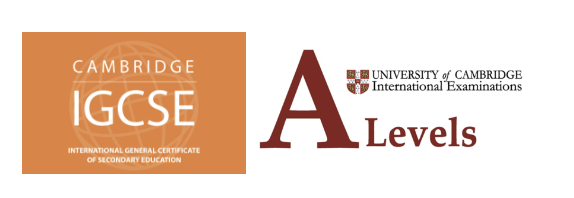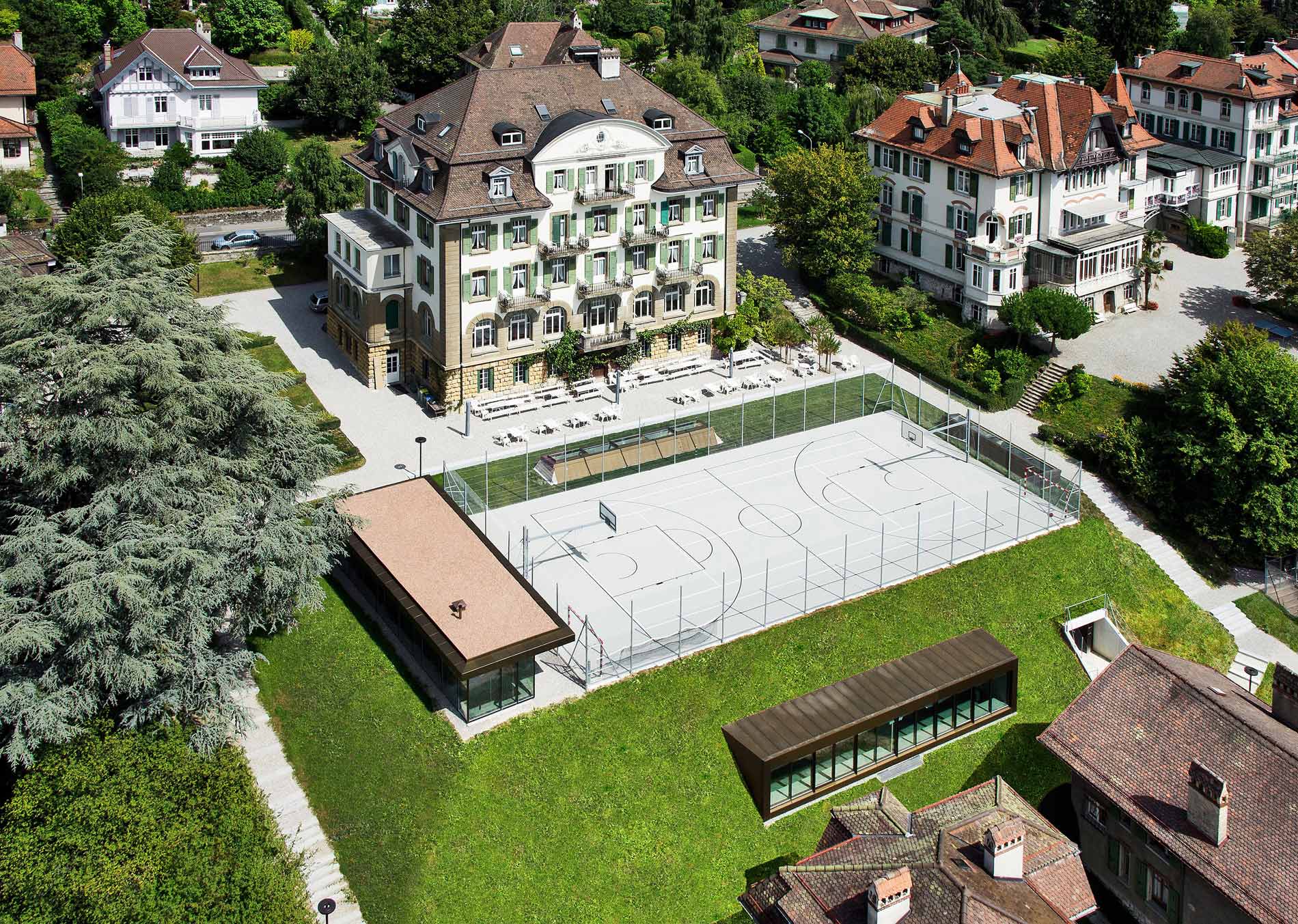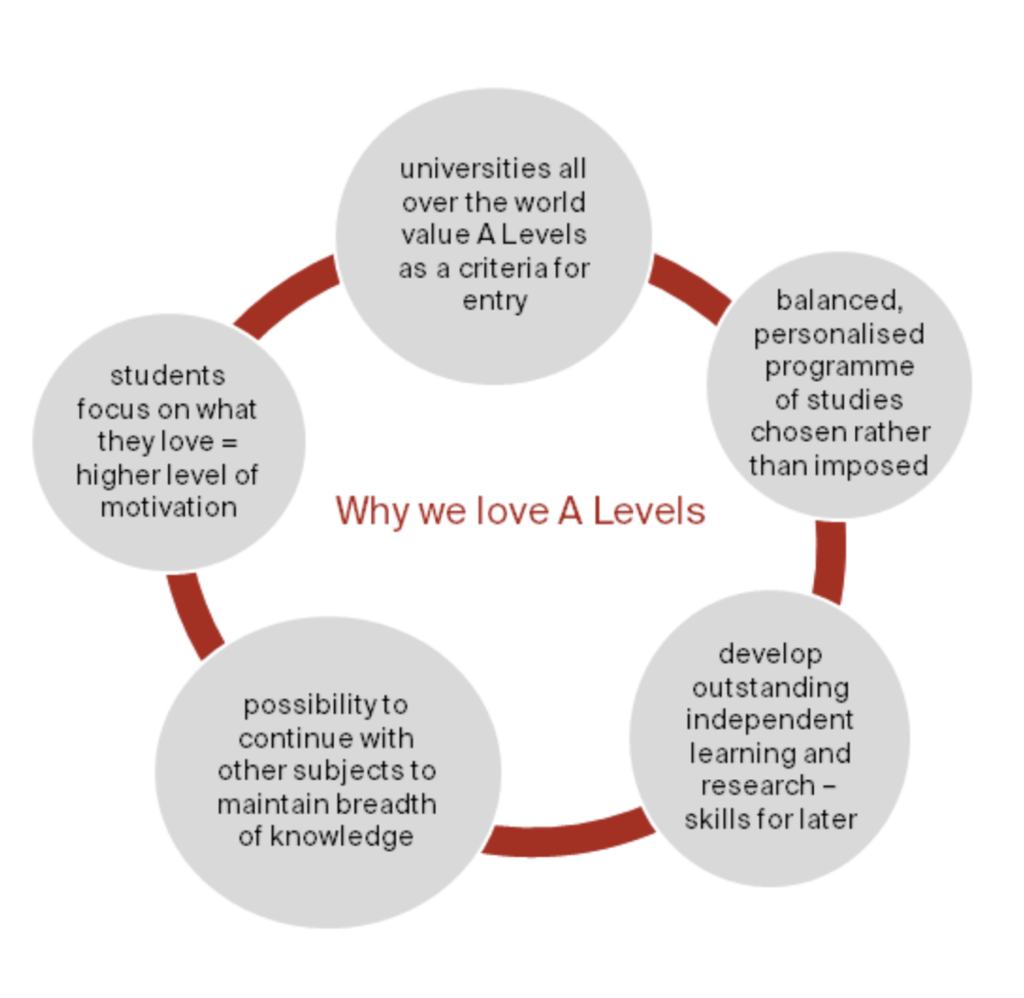Swiss boarding schools are renowned for their rigorous academic standards and diverse curricular offerings, which often include British programs such as Advanced Levels (A-levels) and International General Certificate of Secondary Education (IGCSE). These programs are highly regarded for their thorough preparation of students for university education and their recognition by institutions worldwide.

The IGCSE is typically offered to students aged 14 to 16. It serves as a foundation for further academic work, including A-levels. Swiss boarding schools opt for the IGCSE due to its international recognition and emphasis on developing student knowledge and understanding in subjects ranging from the sciences to the humanities.
Swiss schools typically offer a broad range of IGCSE subjects, allowing students to explore their interests and strengths before deciding on their A-level subjects. This flexibility is particularly advantageous in a multicultural environment where students may have varied academic backgrounds and interests.
The IGCSE is a two-year program that culminates in externally assessed examinations. It provides a broad study program by offering a wide range of subjects which students can choose based on their interests and future academic or career plans. This flexibility allows students to specialize early in areas they are passionate about, while also ensuring a strong general education.
IGCSE subjects are categorized into groups including languages, sciences, mathematics, humanities, and creative arts. Schools typically offer a diverse selection from these categories, allowing students to tailor their studies to their interests and goals. Common subjects include:
Swiss boarding schools are known for their high academic standards and the IGCSE program is no exception. The teaching methods employed are designed to encourage high levels of student engagement and understanding. Classes are typically small, allowing for personalized attention and support from teachers. This environment promotes an interactive learning experience, with a strong emphasis on critical thinking and problem-solving skills.
Project-based learning is often incorporated to help students apply theoretical knowledge in practical, real-world contexts. This approach not only reinforces the material learned but also enhances students’ independent research skills, collaboration, and creativity.

IGCSE assessment is varied, involving a combination of formal examinations and practical coursework. This balance ensures that students are tested on their understanding and application of the subjects, rather than merely their ability to memorize facts. Exams are held at the end of the two-year program and are marked by external examiners, ensuring a standardized assessment across global centers.
At St. George’s International School, the International General Certificate of Secondary Education (IGCSE) is tailored to equip students with a robust academic foundation and personal skills that are highly valued globally.
Assessments are comprehensive, involving a mix of practical exercises, oral and listening tests, and written exams to ensure a well-rounded evaluation of each student’s capabilities.
Successfully completing the IGCSE at St. George’s enables students to progress confidently to higher education, with many leveraging their grades to meet the prerequisites for the school’s IB Diploma Programme. This seamless transition is facilitated by the IGCSE’s rigorous preparation, which ensures students are well-prepared for the challenges of higher academic pursuits.
Following the IGCSE, students may choose to pursue A-levels, usually between the ages of 16 and 18. A-levels involve a deep dive into a smaller number of subjects, usually three or four, chosen based on the student’s interests and future aspirations. This level of specialization is appreciated for its depth and the independence it fosters in student learning.
Students typically choose three to four subjects from a wide range offered by the school. The choice of subjects is critical and should align with the student’s future university course and career aspirations. Subject offerings often include:
A-level courses are known for their depth and focus, encouraging high levels of specialization in chosen subjects. Teaching approaches in Swiss boarding schools often emphasize:

A-level assessments involve a combination of coursework and end-of-year exams. Coursework may count for a significant portion of the final grade in some subjects, particularly in the arts and social sciences. Final exams are comprehensive and designed to test students’ understanding and ability to apply their knowledge critically and creatively.
Brillantmont International School, with a 140-year history and nearly 80 years of teaching British A-Levels, is one of the few schools in the Lake Geneva area to offer this focused program. Unlike the broader curriculum of the International Baccalaureate, A-Levels at Brillantmont allow students to choose three to five subjects they are truly passionate about, enabling deep, specialized study in areas of their interest.
Recognized globally, A-Levels at Brillantmont open doors to universities worldwide, with some institutions even allowing direct second-year entry based on A-Level results. This depth of study prepares students exceptionally well for university challenges. The school offers a variety of A-Level courses across sciences, languages, and humanities, alongside flexible service-learning options, such as Habitat for Humanity and local soup kitchen initiatives, providing both academic and personal growth opportunities.


Global Recognition: Both A-levels and IGCSEs are recognized by universities and employers worldwide, making them an excellent choice for students looking to study or work internationally.
Academic Excellence: Swiss boarding schools are known for their high educational standards and this extends to their British programs. Students are often taught by highly qualified, experienced teachers who are adept at preparing students for these challenging programs.
Cultural Diversity: Studying in a Swiss boarding school offers students the unique opportunity to live and learn in a truly international environment. This exposure is invaluable and complements the global nature of British educational programs.
Preparation for University: The A-levels are specifically designed to prepare students for the academic challenges of university. By focusing deeply on a select few subjects, students develop a strong base of knowledge and critical thinking skills that are highly valued in higher education.
Personal Development: Beyond academics, Swiss boarding schools emphasize the development of the whole student, including sports, arts, and personal growth. This holistic approach is well-aligned with the British educational system, which also promotes a balanced approach to student development.
While the benefits are numerous, there are also challenges associated with the British programs in Swiss boarding schools. The intensity and depth of A-levels can be daunting, and the transition from IGCSE to A-levels requires a significant increase in effort and personal discipline. Furthermore, the cost of attending Swiss boarding schools can be prohibitive for some families, although many schools offer scholarships and financial aid.